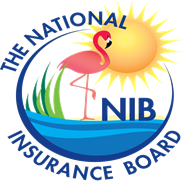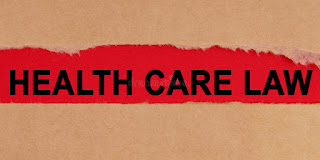We need a radical change to the way the National Insurance Board (NIB) is run
A Response to Lindon Nairn's NIB proposal
By Norman Trabulsy Jr
Firstly, yes, the failings of NIB are based primarily on “political interference”, as he states. Now, I would ask what is included in Mr. Nairn's idea of political interference? Is it outright misappropriation of funds? Is it by using NIB as a slush fund? Is it by failing to look at the actuarial trends and responding accordingly? Is it by political appointments of upper management who are wholly unqualified for these positions? Is it by political interference in the collection and distribution of benefits? Is it by political interference of the laws governing NIB, and the oversight required? Is it by deliberate lack of accountability, and the pace of technological innovation?
I am not convinced that every public service should be outsourced to the private sector. Private profits, as well documented in health care for instance, is what is driving the rapidly rising cost of health care.
The U.S. is a perfect example of this. U.S. government Medicare administrative costs are 1% - 2% of revenues. Private health insurance companies, such as our Colina, have 15%-20% administrative costs.
It is a fact that most bankruptcies in the U.S. are because of health care costs. Would God approve?
What some people call reckless inefficiency in government is simply called reasonable corporate profiteering by others. Seems most of us have drank the private sector Kool Aid.
Mr. Nairn says, “ Until recently, any private citizen could simply put money into fixed deposit accounts at any financial institution and generate multiple times NIB's net earnings.”
Judging by the statistics available to all of us, what percentage of our private, average Bahamian citizens can put any money into a bank at all? As to my knowledge, the majority of Bahamians are living pay check to pay check - unable to cover a $400.00 emergency.
Some things in this world, especially health care, should not be left to the “free market”. Granted, here in The Bahamas we have little visionary and educational exposure to models different from our guiding light rent seekers to the north.
Not exactly a good example of Christianity in action, is it?
In my lifetime, I would be hard pressed to give examples where the private sector really did out perform previously government run services, in an educated and free society.
Instead of our government hiring the same professionals who have successfully run other similar institutions, we chose to place political hacks who have neither the intelligence, education or integrity required to lead, and then we wonder why that institution has failed.
Is this not our history in a nutshell?
You want a well functioning enterprise? Then hire a qualified person to lead it. Just like the private sector does. Pay them well. Let them hire and fire as they see fit, and leave them alone. We will then get acceptable results. Just like the private sector does. Is this such a hard concept to understand?
The “heavy lifting” Mr. Nairn speaks of is not in privatizing NIB, rather it is in recognizing our own shortcomings and failings, and fixing them. Isn't this always the heavy lifting we require?
In my estimation, not every human good or government service requires private profit to succeed.
Batelco was sold so that we would ostensibly get more efficiency and better service. Can anyone tell me that selling BTC was not a deal made behind closed doors that enriched a handful of greedy politicians and their private sector friends?
Has service improved? Does The Bahamas benefit from the sale of BTC in any way?
In fact, I would argue that a truly Christian perspective would see NIB, health care, life saving drugs, minimum food allowances, as God given rights that should not be touched by the money changers.
The very idea that a “company” should profit from health care should be offensive to a true, right thinking Christian.
Let the private sector gamble to their hearts delight. But, when they cross over into essential human services, we need to let them sit small.
I agree with Mr. Nairn that we need a radical change to the way NIB is run. That much is clear. However, I fear that NIB, like BTC, will simply become a revenue stream for a handful of millionaire and billionaire corporate executives who have little concern for our people, and every concern for their private profits.
Mangrove Cay, Andros


